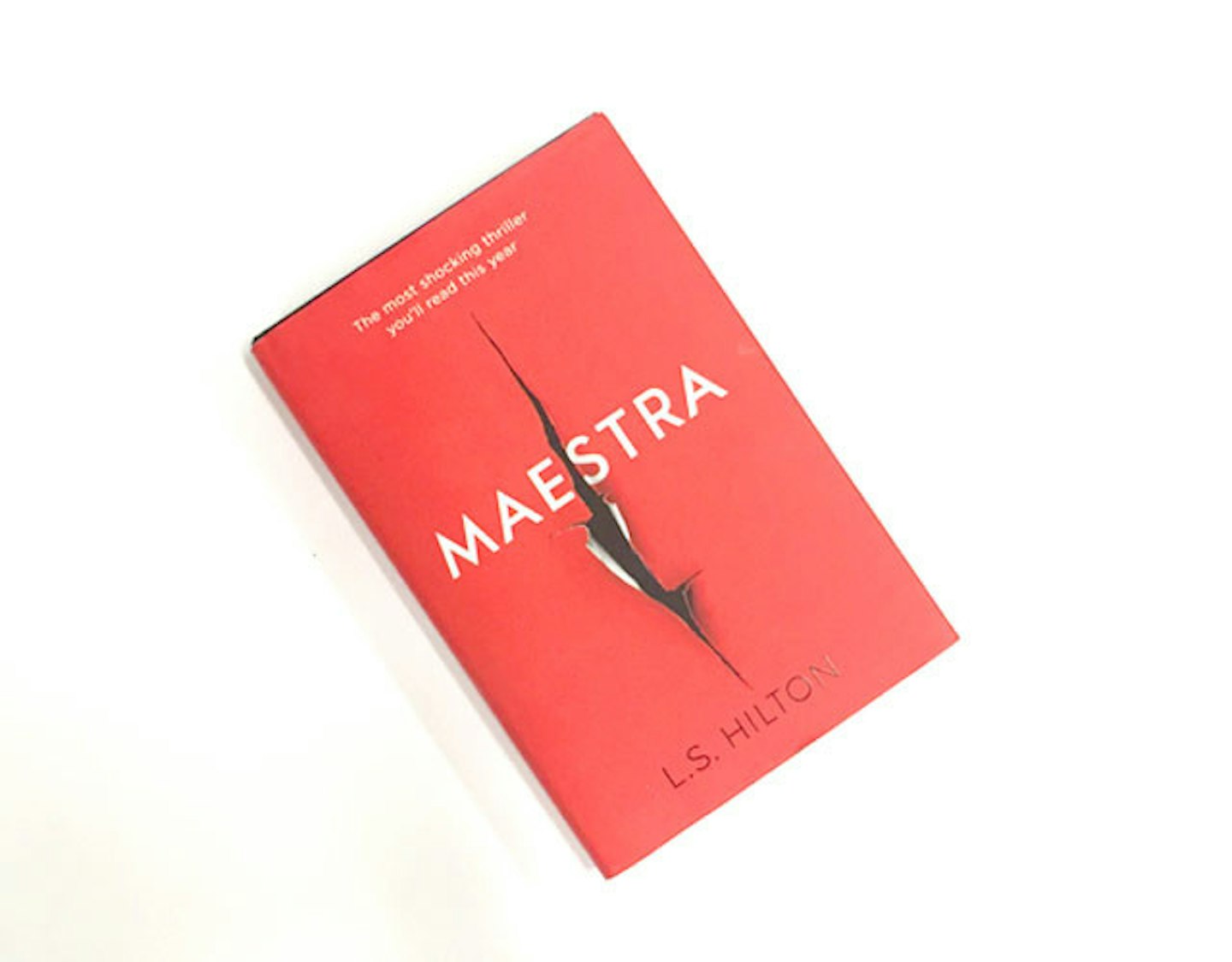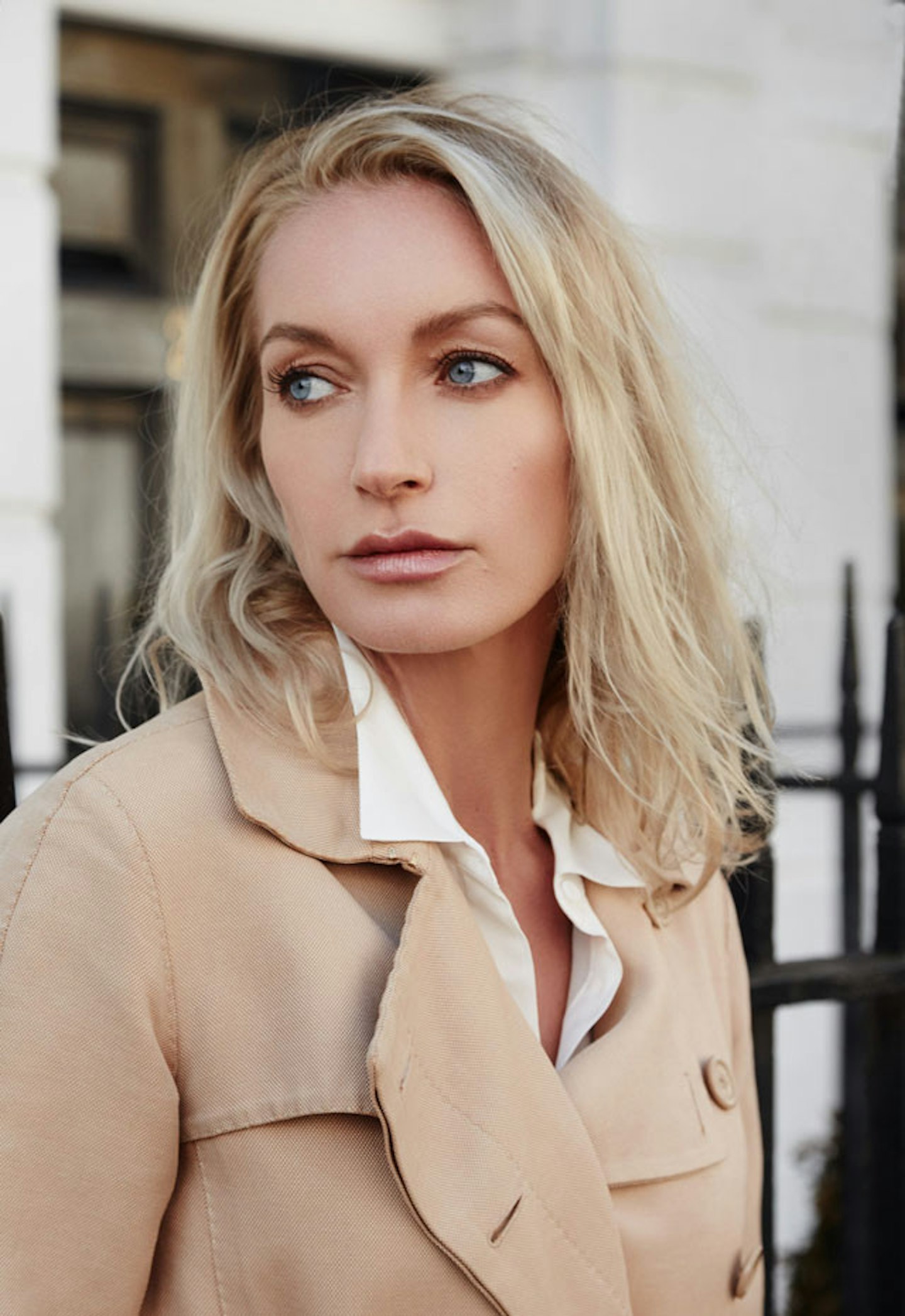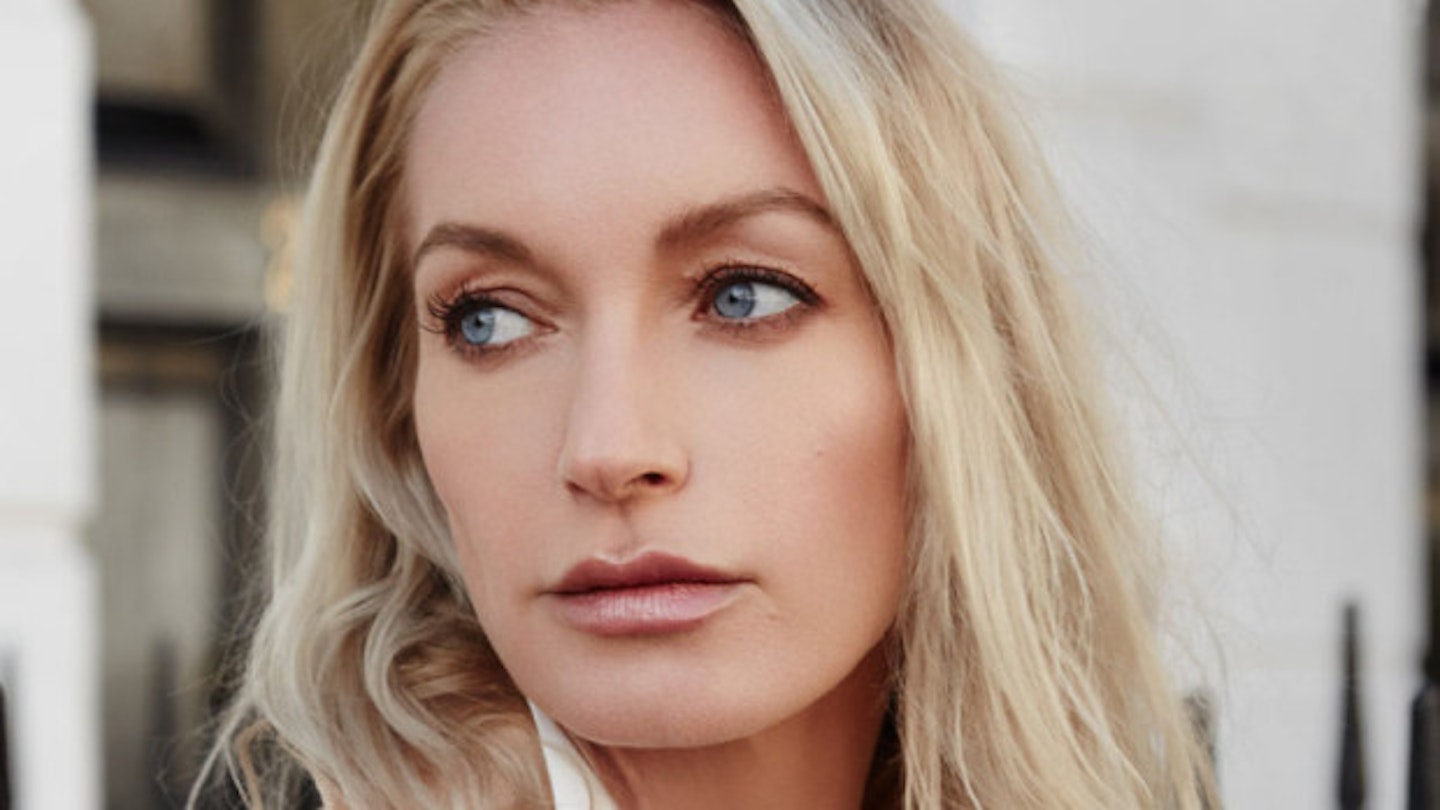Maestra, L.S. Hilton's new book laden with erotic scenes and depictions of the wealthy jet-set 1%ers, has been touted as the new 50 Shades of Grey. But don’t let that put you off; it’s a lot more like a twisted combination of Kill Your Friends, Gone Girl and, eerily, The Goldfinch.
Examining class in a sordid thriller of social-climbing turned macabre, Maestra tells the tale of Judith, an art auction house worker turned nightclub hostess, darting about the moneyed Mediterranean, fleecing a series of men, and much, much more. It’s written by Lisa Hilton, a history writer whose name appears as ‘LS Hilton’ on the book’s cover because she worried the ‘four old ladies who read my history books would be upset’ if they picked up a copy of Maestra. Those who do enjoy the book, though, are excited; it’s been sold for a six-figure sum to be adapted into a film by executive producer Amy Pascal (Skyfall, American Hustle) and on the day we meet, Lisa tells me it’s just been confirmed the book will be published in its 37th country, Ukraine. In a Marylebone bistro full of fusty old men in suits, here’s what Lisa has to say about her book:

There doesn’t seem to be any description of Judith’s appearance in the book…
There is none! I wanted each reader to imagine her in any way they chose. We know she’s sexy and attractive, but I didn’t want to say she was attractive in this way or that way. I also felt it made her slightly more menacing as a character, as she’s got this quality where she can be completely unremarkable, but if she straightens her back, suddenly she’s the only woman in the room.
Who do you want to play her in the film?
I have no control over this, but Amy Pascal and I - check out me, Hollywood name-dropping! - were talking, and we both liked the idea of all the victims played by famous actors, and to have this unknown who’s the last woman standing at the end.
To me, this book seems to be as much about class as it is about sex…
Yes! We’re all still obsessed with class. We’ve got a Cabinet of Old Etonians, we can’t get enough of Downton Abbey and yet at the same time it’s a very uncomfortable subject. In a way class is the new sex, that’s the elephant under the duvet!
You’re both from Liverpool and know your art history. How much are you willing for people to conflate you and Judith?
I don’t think it’s a question of whether I’m willing or not - they will if they want to. But I certainly never killed anyone! I know and understand Liverpool. My immediate family were very ordinary, school teachers, but growing up in that area, I could write about it with confidence.
Your critiques of the rich are very scathing - do you have a contempt for money?
I think there’s something rather spiritually arrogant about people who say ‘I don’t need money’, because of course if you haven’t got any money it’s the only thing you’re able to think about. The sheer business of living becomes so fraught with complications, with minute calculations. I’ve certainly been that person at the supermarket at the till thinking ‘Oh shit, do I have to put that one back?’ We all have those [moments] and most of us are lucky enough to not have them very often, but if your entire life is like that, it sucks out your soul. I don’t despise money, I just think that people who have it are often really unimaginative. Why would you want to sit in a floating sewer in St Tropez all summer when you could do anything you wanted?
Why do you think people are so obsessed with the sex in Maestra?
The sex scenes aren’t gratuitous, they’re all crucial to the plot. Judith is constantly recreating herself, and the only time she is purely her is when she’s having sex the way she wishes to. In a book that is all about seeing, this allows the reader to see her in a different way, that was important. But I also wanted to write about a woman who was modern, who was young. When people are shocked I say: ‘Have you not looked at Tinder? Or what teenagers say to each other on Snapchat?’ Judith is a product of a much more sexually graphic age. So when I wrote these scenes I wasn’t even trying to be provocative or sexy, I just thought: what do grown ups do?
What do you think about the growth of internet porn as a competitor?
I’ve not watched a lot of porn so I did to familiarise with Judith’s generation. It was tame, but I’m amazed at how much there is, how endless people’s appetite for it seems to be and how unskilful a lot of it looks. It can’t be fun, everyone’s pretending to enjoy themselves. It mostly looked like what it was, an effort that was being made for money by professionals. I wasn’t horrified or appalled it was just dull - oh here’s another massive cock, and here’s another massive cock!
Judith does have some pretty bad sexual experiences. They might not be assaults, but are certainly coercive…
In my initial draft, after that scene, she decides she is angry, she is upset, but those emotions are luxuries for the women who’ve got people to take care of them, women who can afford to complain, women who the police will listen to. She can’t afford them. It’s almost as though she decides as an exercise of her own strength that she’s gonna do something else…
I hope she goes back and kills them
You know, I hadn’t thought of that!
I also wanted to ask about the bit where Judith can taste the oysters she’s eaten but from another part of her body than her mouth. How do you know that happens?
I tried it. I didn’t do all the practical research for this book myself, but the oyster thing, I’m happy to admit to.

There’s also some gross sex in Maestra.
I’m glad it was gross, it was meant to be gross! You can write sex so many ways, and sometimes it’s completely repulsive and sometimes it’s completely beautiful and a whole range of things in-between.
Are some of the old gross men in the book based on real gross old men you know?
It’s a novel with fantastical elements, it doesn’t pretend to be a work of absolute realism, they are grotesques. But at the same time, have a look round…[she looks around the restaurant]
Judith’s motivation seems to be that she’s tired of being treated like a sex object, so uses her sexuality to her advantage
Something clicks and she goes: ‘Ok, I’m gonna turn this against the people who’ve attempted to exploit my sexual capital’. And if I may say so as a very old person, people of your generation have really been sold to pot, because you’ve been brought up in this culture of: if I try hard enough, if I work hard enough, if I run fast enough, if I believe in myself I will succeed. Well bollocks! Social inequality is far far greater it Britain now than it was in the 1970s. University is no longer free, the chance of getting any sort of job in the arts without unpaid internships is pretty much impossible, which means a smaller and smaller minority of people are able to take on those posts. And what’s really insidious about this is that generationally you’ve been sold the idea that if you’re not doing well then that’s your fault; you’re not trying hard enough, you’re not Instagramming enough, you’re not putting your self out there enough. And of course those things are very important, but there are other factors at play. And no one wants to talk about that; but Judith’s rage at this is something young women are going to recognise.
Just before Judith has to leave her job, you go to great lengths meticulously describing Judith being very good at it. Was it important to show this?
The whole whole story rests on her ability to tell the real thing from a fake and she needed to be convincing as someone who knows the nuts and bolts of that work. So I spoke to financiers in Geneva who told me, off the record, how to move dodgy money, and I asked a former member of the British armed services about how a gun would sound and how it would feel in the hand. I also got a male friend to lie on a carpet and dragged him across the floor I wanted to know, as a woman, how that feels in your body? What muscles do you have to use? Trying to invest those ideas with realism is really important. Readers are really smart and they can tell when you’re faking it
Did you ever feel tempted to get a gun and have a shoot of it?
No! I’m extremely incompetent when it comes to things. I can barely switch on my iPhone, the thought of a gun in my hand would be disastrous
Where did you get the idea for the murder scenes?
I did a lot of research in [medical journal] The Lancet. I did precise research and gave Judith flatmates that are medical students, because then it’s plausible that she could have learned that information in her real life. Judith is a difficult character in so many ways - she’s not particularly likeable. But I wanted the reader to root for her, and I thought, unless she’s convincing in every detail, the reader won’t be on her side.
I’m not going to ask if Judith is a feminist, or if you’re one, but what I like about Maestra is here is a woman getting shit done. Is that in itself empowering?
Yes! I think women are so boxed in by the idea we are all fuelled by our emotions, it’s not very far removed from Plato’s idea about hysteria, that we are subject to our wandering wombs! I wanted to know what would happen if you took emotion out of the equation.
Is Judith a psychopath?
I’d say she’s a sociopath, psychopaths have no moral awareness of what they’re doing. Judith’s perfectly aware. It was only after I wrote the book that I realised I’d unwittingly written a textbook sociopath.
The last time we saw a woman quite like Judith, it was Rihanna in the Bitch, Better Have My Money video…are you into her?
Until quite recently I wrote a restaurant column for a magazine. They never paid me on time. And I’m much better off now than I used to be, but I wasn’t well off then, and it was a big problem to me that they weren’t paying me. I’d write these pathetic little letters, ‘May I respectfully draw your att-‘ like some kind of Dickensian clerk! They’d never pay me. So when I sold the book, I thought ‘Fuck this shit’ so I copied the video for Bitch Better Have My Money in to an email to the accounts department
And did you get paid?
Yeah!
That video did get a lot of flack, though - do you think there’s an argument for fictionalised women just doing anything, even if it’s meting out violence against other women?
Yeah! Women in fiction just aren’t allowed to murder other women, it’s not allowed. But I was interested in what happens if you break the taboo. The book isn’t about promoting violence, it’s about a character who has that violence within her. But I do think that women are increasingly placing themselves back in this Victorian box. We’re passive, we’re victims, we need to be protected by builders wolf whistling at us in case our delicate sensibilities get offended. Fuck that! We’re actually big enough and strong enough to lead governments and run banks and have babies and do loads of cool shit. We don’t need safe spaces, we really don’t. At least there are lots of women in the world who do - and we’d be lots better off examining those women who do, rather than examining celebrity cellulite.
But these are just two sides of one big spectrum, surely?
The dynamics between the sexes remains contentious, but I think sometimes a whistle can just be a whistle. As a student in Italy, I couldn’t walk down a street without someone saying ‘Ciao bella’ and it wasn’t meant as offensive, and nobody got upset. It made you feel better about the world! I think there’s a degree of joyfulness which has perhaps been lost and adult women ought well to be able to cope with it.
You had fun writing the book - is Judith having fun?
Interestingly the next part of the story is about - what happens when you get what you want. She’s been propelled this amazing trajectory by sheer force of will, like [redacted name of celebrity here] to where she thinks she wants to be but then of course, what happens when you get there?
Like this? Then you may also be interested in:
Dildos And Gimp Suits: The Weirdest Stuff Ever Donated To Charity Shops
30 Non-Shit Motivational Quotes From Women Who Aren't Marilyn Monroe
How Many Books Have You Read From Bailey's Women's Prize For Fiction 2016 Longlist
Follow Sophie on Twiter @sophwilkinson
This article originally appeared on The Debrief.
